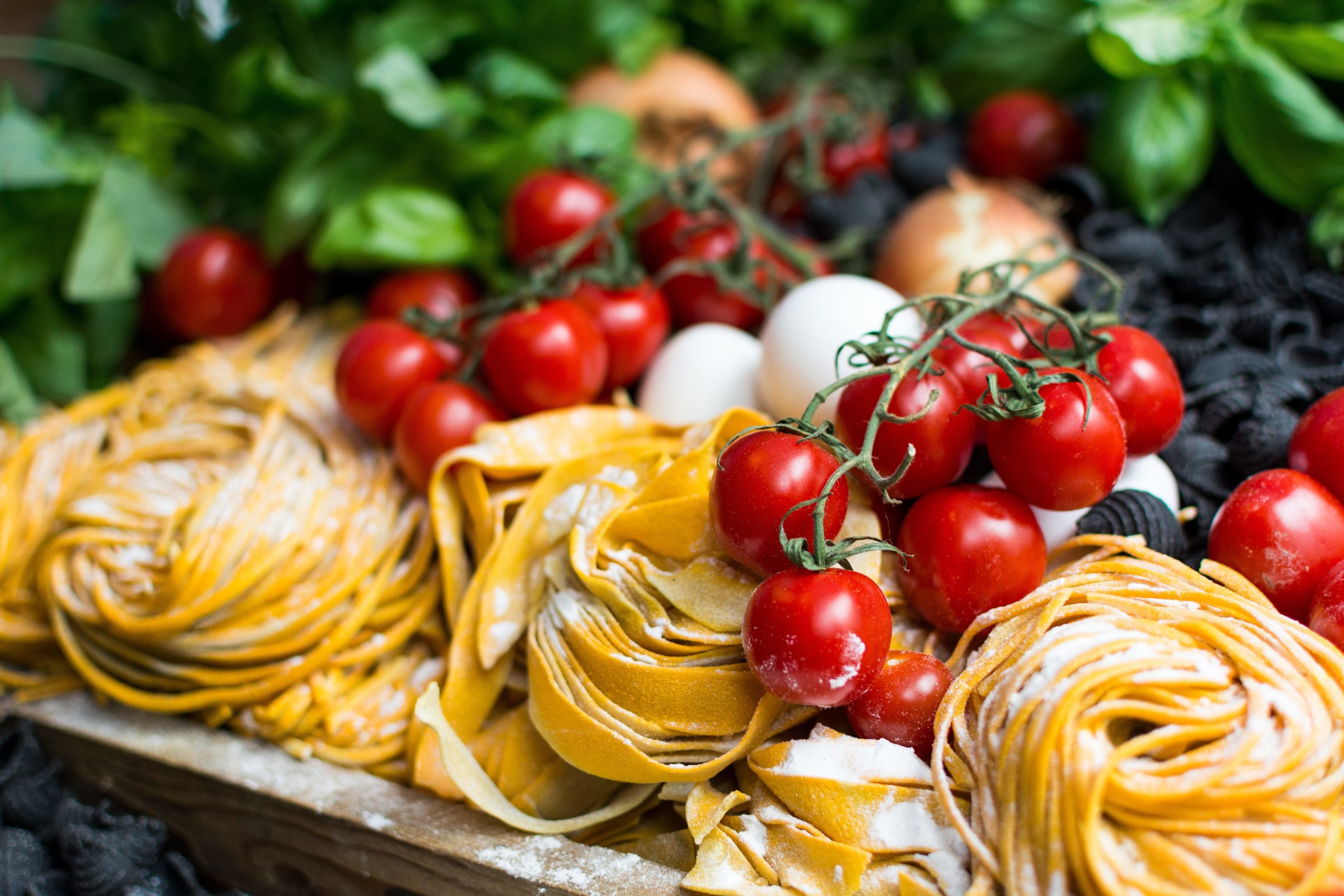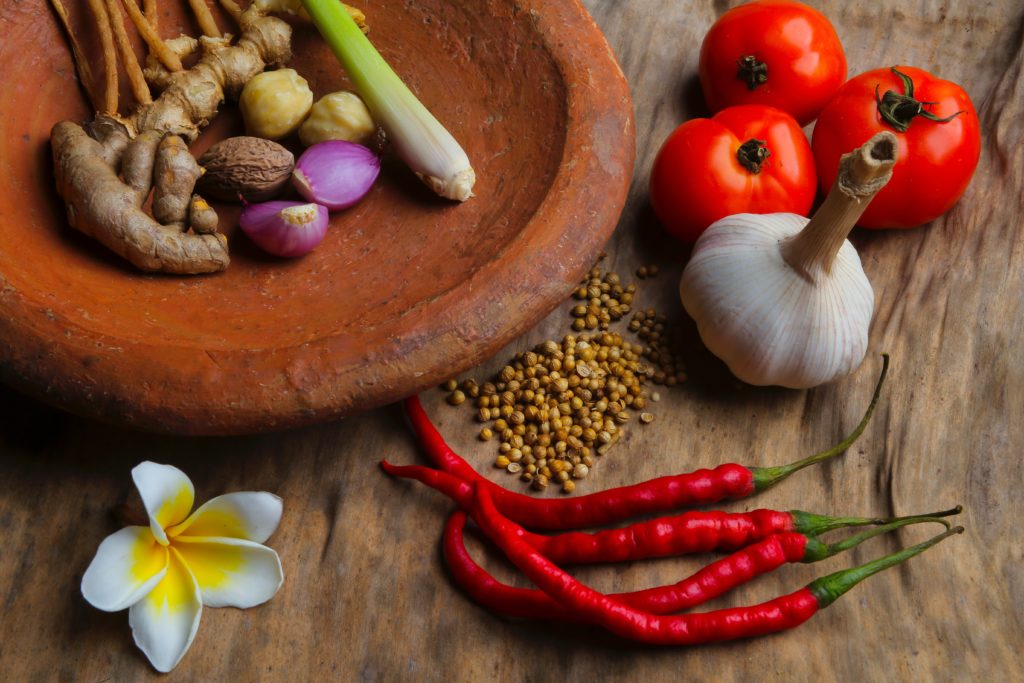
Mangiamo al Cinema, Cinema e cucina, T. Mauri, magazine n.8
Cinema makes us dream, it shows a fantastic world that diverts us from every-day life. Obviously themes about food and eating, atavic passion of us all and refined cultural expression, are featured in many films. Food is and has been a great generator of film narrations: has inspired stories of love, of friendship, has linked people from different parts of the world recalling emotions and memories. It can tell much about the character and this often is an important element to create the atmosphere and the historic frame of the story.
It all bagan when two French brothers created “a meccanism that stopped the celluloid at each shot, permitting light to pass through it for the time necessary for the image to be projected on the screen, then pulling it ahead, passing to the next shot. It was the year 1895 and the brothers were the famous Lumiere, Auguste and Louis, that invented and patented the “cinematograph”, an invention that stood out internationally and, from then on, gave birth to everything that today is considered video.
Already at that time, with the first projection of the first ten short films at the Salon Indien du Grand café at numeber 14 Boulevard des Capucins in Paris the 28th of December 1895, inauguration date of the cinema, there was one in which food was protagonist. We are speaking of the “Repas de bebé” (The baby’s breakfast) in which August and his wife Marguerite feed their one-year-old child Andrèe, with silverware, coffee, sugar cubes, bisquits and baby food.
When the cinema arrives in Italy, many Italian films celebrate Italian cuisine in memorable and legendary scenes as that of the women in “Roma città aperta” assaulting the city bakeries, just freed by the Allied Americans, to obtain some “black bread” for the family and all their relatives. Other relevant scenes in “Ladri di biciclette” ( Bicycle thieves) in which a poor boy slowly enjoys a sandwich with stringing mozzarella cheese or even in “L’onorevole Angelina” that will then become icon of the Italian family. A stereotype indeed, but also a distinctive trait of Roman apparent benevolence and good nature of Albo Fabrizi or the Naepolitan humor of Totò in the film “Miseria e nobiltà” (Misery and nobility) in which food and hunger stand out above all. Memorable the scene of Totò dictating the grocery list of what to buy with the money obtained after bringing his coat at the pawn shop (mozzarella that squeezed between your fingers will drip, if not, don’t buy it). Other impressing scene when he dances on the table stuffing himself with spaghetti using his hands and even filling his pockets.
Rome and Naples are the cities in which the folk cuisine triumph, that of tradition and that of the big feasts as in the famous scene in “Un americano a Roma” (An Amirican in Rome). In this film Alberto Sordi, known as Nando, desires to be a real American, dreaming pop-corn, steak, chewing gum, speaking a macaronic English, so he imposes himself to eat as them. He sets the table convincing himself of his choice displaying common places about honest, brave and most of all, sober yankees. After putting aside the dinner his mother had prepared for him, he prepares a mix of foods “made in Usa”: bread, jam, mustard adding some milk on top.. After chewing this disgusting mixture, he looks at the enticing dish on his left and, spits out his mouthful and says: “Ammazza che zozzeria” (How disgusting) (this expression has been used other times by Christian De Sica and by television hosts, Bonolis principally). Nando then givs in to the tempting plate of spaghetti saying the famous phrase; “Macaroni…you tempted me and I will destroy you! I will eat you…”, he then gets the milk: “this we give to the cat”, the yogurt “this to the mouse” then the many-time mentioned mustard “with this we kill the bugs”.
As we said, Naples imposes itself as the city of street food and home dinners as we see in the unforgetable film “Sabato, domenica e lunedi” (Saturday, Sunday and Monday) directed by Lina Wertmuller, based on the same-titled comedy by Eduardo de Filippo. Here we find the sublimation of the concept of ragù as a metaphor of the precarious relation between Rosa (Sophia Loren) and Peppino (Luca de Filippo) already married thirty years. The restlessness of the woman thet fears being cheated on, arises first in the butcher shop where she beats up with another lady because of a discussion on perfectionism, then, during the Sunday lunch she feels offended by the “gastronomic cheating” of her husband, guilty for having appraised their daughter-in-law’s macaroni. Peppino becomes jealous when his next-door neighbor exaggerately loves Peppino’s wife’s cuisine. While they’re all sitting at the table and they taste U’Rau simbolic dish of the Naepolitan cuisine, which takes days of cooking, they bring out old resentments, discover secrets, say truths and finally reconcile.
Films of an Italy that no longer exists, contaminated by globalization and new demands of the cuisine. Cinema that changes and evolves bringing us in far, hardly known worlds that invite us to taste snakes with live eels jumping out on the food-laden table, juicy cockroaches to suck, aromatic soups with eyes floating on the surface, and as dessert, semifreddo monkey brains (“Indiana Jones and the temple of doom”).
Cinema takes us into kitchens and restaurants, as in “Big Night” where the Pileggi brothers, Primo and Secondo emigrated to America, open a restaurant but argue on the management: Primo, the chef, absolutely doesn’t want to compromise and insists on rigorously maintaining the culinary tradition of his region. Secondo, in charge of the dining area, would prefer modifying dishes and recipes to meet the clients’ taste. Obviously their gastonimic ideas reflect how they integrate into the new society. Among the funniest scenes there’s the one in which a lady client requests spaghetti as a side dish to risotto and they have to explain that the choice is absurd. Besides she is disappointed that the spaghetti’s are without meatballs. Why spaghetti without meatballs? The answer: “Because sometimes spaghetti like to stay alone”. In another film “Ratatouille” we find a young Alfredo Linguini, employed as kitchen porter in a famous Paris restaurant, make friends with Remy, a mouse with exceptional scent and taste senses that make of him a skillful chef. Hidden under his hat, the mouse tells him which ingredients to use, how to prepare and cook them, to conquer the palate of the most dreaded French gastronomic reviewer, Anton Ego. Memorable the scene in which Anton tastes a dish at Ratotouille and returns to his childhood memories: at the first forkful he melts at the taste of the dish, poor but delicious, prepared for him by the mouse Remy, that takes him back to memories of his mother’s warm, reassuring home kitchen, to the point that he finishes the common, banal, popular dish, licking his fingers and complimenting the chef.
There are also films where the protagonists are bad-tempered, egocentric, egoistic, loner and maniacal chefs – as in the famous “Il sapore del successo” (The taste of success), where Adam Jones is a starred chef that ruins his career with sex, drugs and quarrels. With a great future behind, the ex-enfant terrible of the Paris gastonomy, decides to get back in the game opening a restaurant in London aiming at the three Michelin stars. In the film “Ricetta d’amore” Martha is the merciless chef of the Lido, a very refined French restaurant in a German town. Her work is her life’s main reason until her niece enters the scene. Having lost her mother the child refuses food, even her aunt’s irresistible dishes. The arrival of Mario, eccentric Italian chef, makes the child regain her appetite with a plate of spaghetti, but also awakens the aunt’s enthusiasm for life. In the film “La cuoca del presidente” (The president’s chef), we live in a parallel world in which the culinary discipline unites social classes: the story is freely inspired by the life of Danìele Delpeuch, the chef that in 1986 was hired at the Eliseo to cook for Francois Mitterand, approaching the President of the French Republic by means of rules, discipline and cure for food.

